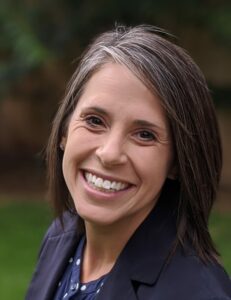
Emily Gonzales
If you’ve been following Make Philanthropy Work these last few years, you know our emphasis on creating a positive culture of philanthropy across your organization and donor community.
While this idea certainly trends in the philanthropic world, it’s important to embrace it beyond a popular phrase – a culture of philanthropy flourishes when all staff, volunteers, and leadership see the value and need in fundraising, know their role in this work, and eagerly engage. Putting sincere intentionality behind your “why” and “how” in deepening and maintaining this cultural shift is foundational in driving your organization’s long-term success.
Suppose you’re confident in your organization’s support of fundraising and your development staff. In that case, we invite you to think creatively about how you can further break down barriers in your organization with practices that inspire your culture of philanthropy to evolve alongside and in support of your mission.
The Why…
In my work across organizations of varying size and scope, I’ve found that any organization functions more smoothly (in service of their mission and goals) when silos are broken down – and promoting a positive culture of philanthropy is a fantastically effective avenue for this.
For some, this may necessitate a shift in thinking about and an emphasis on philanthropy as an avenue for donors and organizations to live their values. When everyone in your organization sees giving as beyond transactional, and even beyond reciprocal, as an opportunity for donors to do something meaningful and deepen their commitment to what is important to them, your entire team will be more motivated to foster positive donor experiences and make connections beyond what your fundraising staff can accomplish alone.
The How…
Communication & Collaboration
Your organization is likely seeing tangible benefits from a cultural shift in support of your fundraising staff and goals. The most significant recommendation we have around setting the stage for ensuring a positive culture of philanthropy remains a consistent aspiration for your organization is to incorporate this goal into your strategic plan. As your plan will be shared with your board, staff, and perhaps even key partners and investors (and even brought to the table many times over the years), this communicates far and wide that fundraising is critical to the direction and success of your work.
While your development staff are bringing your yearly fundraising goals to board, staff, and committee meetings, are they sharing what is happening in development with your organization? Sharing details of development activities, such as what relationships are blooming, what events are upcoming, and what you’re planning to fundraise for in the future, creates more transparent communication and inspires staff involvement. This also brings opportunities to celebrate staff involvement and fundraising progress, essential in the continuum of positive feedback needed to keep your staff and volunteers eagerly engaged in fundraising.
One example of collaborative success I’ve seen is a stewardship committee working closely with a membership committee in a small organization to ensure their cultivation and stewardship of donors and members (who are one and the same) are synced. Especially in organizations with diversified revenue streams, we recommend a team approach to defining donor and other individual engagement paths (and associated activities) with your organization.
Opportunities & Expectations:
Volunteers & Staff
Creating opportunities to bring staff and volunteers into the day-to-day fundraising (and vice versa) can deepen trust and understanding of what everyone in your organization is doing and working toward. You can intentionally break down silos by ensuring that fundraising staff volunteer in programming areas, and that programming staff support or attend a fundraising event. I would recommend this to any organization looking to encourage your staff to work together, build trust beyond communication, and foster empathy.
Staff goals and annual reviews are an effective avenue to promote and assess team support for fundraising. Consider adding one fundraising aspiration to every non-fundraising staff member’s yearly goals—this could be making a connection to a prospect, joining your development team in cultivating a particular donor, or contributing an impact story for a campaign or other communications material.
Supporting non-fundraising staff and volunteers with training on big-picture fundraising goals and what to do when someone expresses an interest in giving to their organization can widen lead generation far beyond your development staff’s reach. Creating the continuous expectation and understanding that everyone is integral in identifying new donors can even bring contacts in industries and cities that your organization isn’t currently positioned to network in.
Especially for your board members (whom you likely recruited with their network connections in mind), your development staff plays a key role in encouraging them to form relationships in their communities that can result in major gifts. Within this, we recommend bringing board members into the cultivation and stewardship of these prospects and donors in an organized and meaningful way. When your board members see themselves as more than the initial connection – as a critical part of how relationships mature over time – your culture of philanthropy evolves to support deeper connections in the future from new board members, too.
Intentionality around data and databases, especially in larger organizations where information is stored across multiple platforms, is critical to building pipelines and ensuring effective communication about your donors, prospects, and those who benefit from your organization’s services over time. While this may not be the most obvious method to promote a positive culture of philanthropy, a wealth of data points around those associated with your organization can deeply serve your fundraising – emphasizing how your fundraisers depend on trustworthy and accurate information can motivate other data-responsible staff. For example, corporations (especially those that offer matching gift programs) will support their employees’ organization of choice – and if your development team knows where those who are affiliated with your organization work, this will make both identifying leads and navigating conversations with your donors all the more effective.



